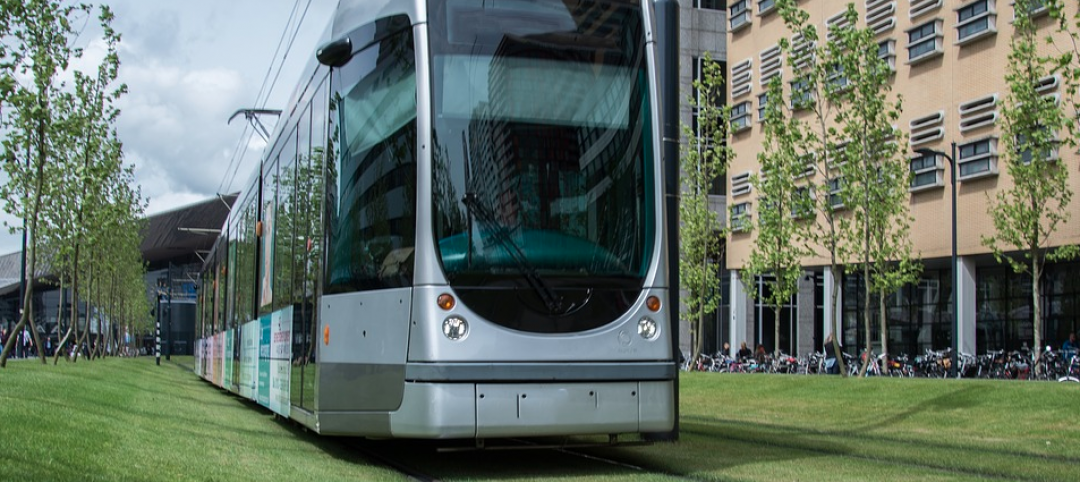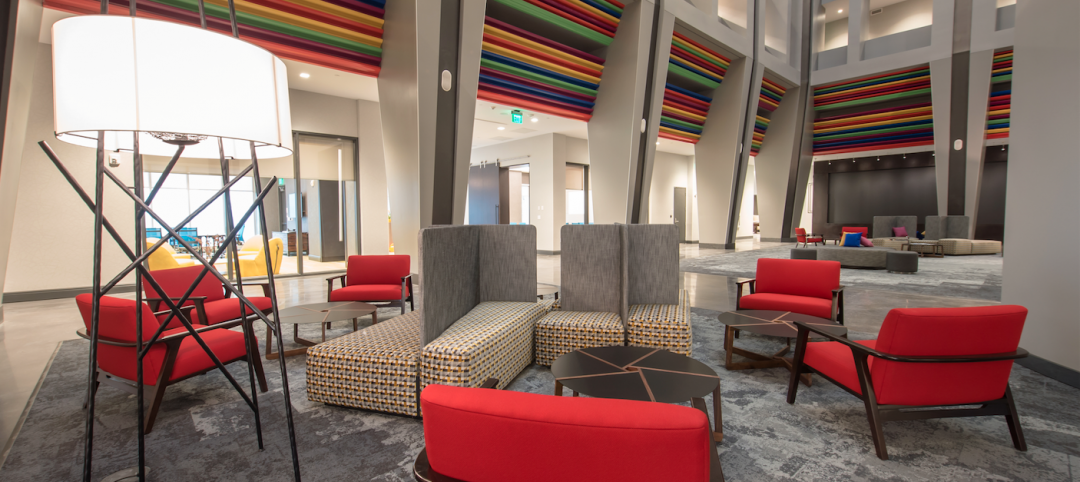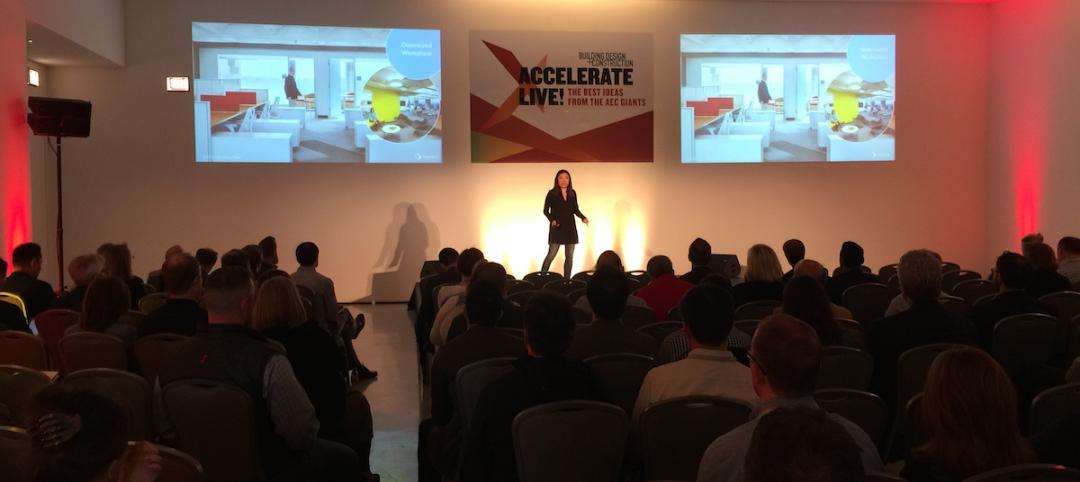The American Institute of Architects (AIA) and the Architects Foundation announced the signing of a memorandum of understanding with architecture firm HOK under which HOK will facilitate focus group activities in partnership with the AIA’s Design and Health Research Consortium, which works to advance university-led research in the area of design and health.
Under the agreement, the AIA and HOK will work with the consortium on its key priority: identifying and developing practice-focused opportunities for funded research, publications and tools in the area of design and public health.
The goal of the collaboration is to help members conduct research that can be translated into practice by architects and be beneficial to people.
“HOK is a bridge to the client community,” said Suzanna Kelley, FAIA, AIA’s Managing Director of Strategic Alliances and Initiatives. “This first collaboration with the private sector is designed to inform consortium members what their ultimate client – the public – needs from their groundbreaking basic research into how design can help improve public well-being.”
The new partnership will leverage HOK’s global network of architects and clients to support translation of existing research—and build the case for more practice-focused research going forward. Findings from the focus groups will be documented and used to help the Consortium universities direct their health research towards a more targeted, client-based approach. The goal of this new partnership is to help Consortium teams further understand how research can be used in architectural practice, and to further the conversation with the Consortium’s public health partners. Focus groups will occur for the next year, concluding in May of 2017.
“We look forward to facilitating focus groups for these institutions and our multidisciplinary design partners in architecture, interiors, landscape, planning and engineering—as well as our clients—in the effort to focus the next generation of research on this important issue,” said Anica Landreneau, Associate AIA, LEED AP, HOK’s director of sustainable design. “HOK and the AIA seek to promote the understanding and application of critical ideas, research outcomes and evidence that sustainable design truly will improve human health and wellness, in addition to ecological health.”
The focus groups will occur at or near the Consortium universities (full list can be found here). These meetings will document the findings of these important conversations. The partnership with HOK provides the AIA and the Foundation with a unique opportunity to engage a respected architectural firm with significant reach on a domestic and global scale. It also helps the AIA fulfill its primary mission of facilitating holistic, synchronous and multi-scale solutions that can empower its members to address a wide range of areas connecting design and public health.
The memorandum of understanding calls for the parties to document and summarize focus group feedback for a broader audience, including the Association of Collegiate Schools of Architecture (ACSA), Association of Schools and Programs of Public Health ASPPH the Consortium Network and participants. The agreement also calls for establishing a process for providing AIA Continuing Education for architect members at each focus group event.
Related Stories
Office Buildings | Jul 17, 2018
Transwestern report: Office buildings near transit earn 65% higher lease rates
Analysis of 15 major metros shows the average rent in central business districts was $43.48/sf for transit-accessible buildings versus $26.01/sf for car-dependent buildings.
Architects | Jul 10, 2018
AEC marketing fundamentals can still have a role in winning new business
In our Internet-fueled world, it’s easy to get distracted by the latest online tools. But the boring stuff is still important, and you don’t want to lose sight of old-school techniques that are just as persuasive now as they were a few decades ago.
Adaptive Reuse | Jul 9, 2018
Work, park, live: Inside Cincinnati’s parking garage turned lifestyle hotel
The Summit hotel and conference center is a converted parking garage that was once a factory.
Architects | Jun 28, 2018
Designing successful maker spaces
The challenge is to design makerspaces that work, spaces that function as a tool for educators to produce better students.
Architects | Jun 27, 2018
Steven A. Lichtenberger joins Leo A Daly as President
He will lead the firm’s global planning, architecture, engineering, and interiors practice worldwide.
Accelerate Live! | Jun 24, 2018
Watch all 19 Accelerate Live! talks on demand
BD+C’s second annual Accelerate Live! AEC innovation conference (May 10, 2018, Chicago) featured talks on AI for construction scheduling, regenerative design, the micro-buildings movement, post-occupancy evaluation, predictive visual data analytics, digital fabrication, and more. Take in all 19 talks on demand.
Building Team | Jun 22, 2018
What owners should know before choosing the design-build project delivery method
Outside of drawing up a well-written contract, owners often overlook a key attribute that can significantly impact the success of a design-build project, writes Skanska’s Julie Hyson.
Architects | Jun 14, 2018
Chicago Architecture Center sets Aug. 31 as opening date
The Center is located at 111 E. Wacker Drive.
Multifamily Housing | Jun 13, 2018
Multifamily visionaries: KTGY’s extraordinary expectations
KTGY Architecture + Planning keeps pushing the boundaries of multifamily housing design in the U.S., Asia, and the Middle East.
| Jun 11, 2018
Accelerate Live! talk: Regenerative design — When sustainability is not enough
In this 15-minute talk at BD+C’s Accelerate Live! conference (May 10, 2018, Chicago), HMC’s Eric Carbonnier poses the question: What if buildings could actually rejuvenate ecosystems?
















